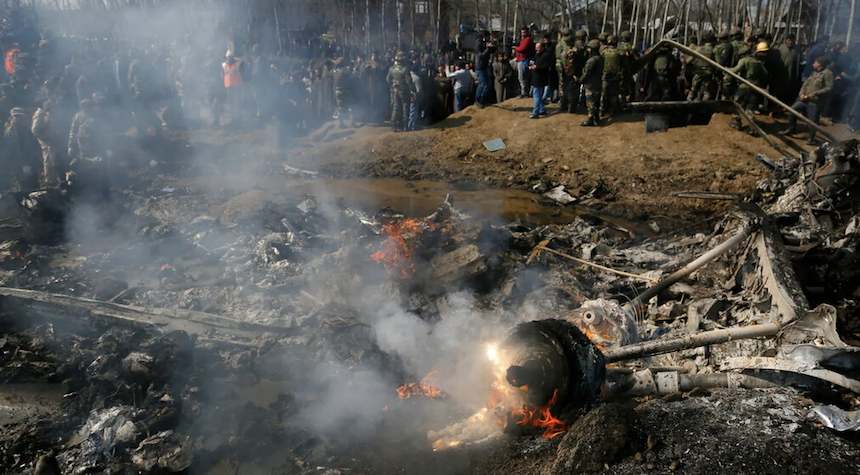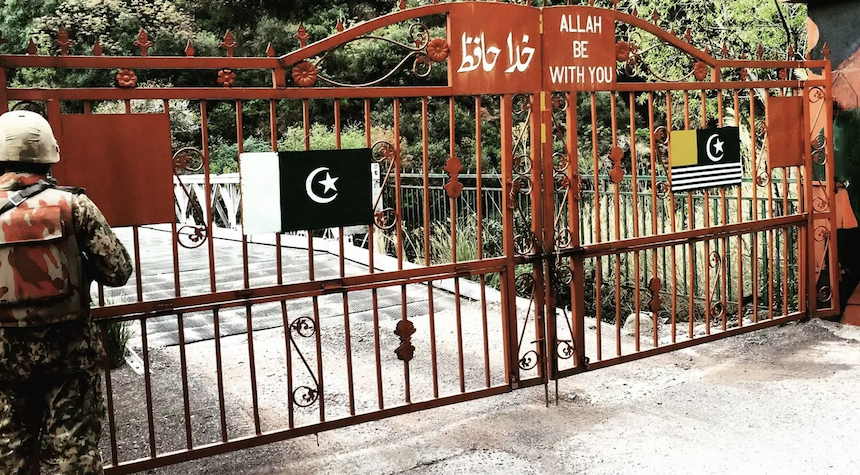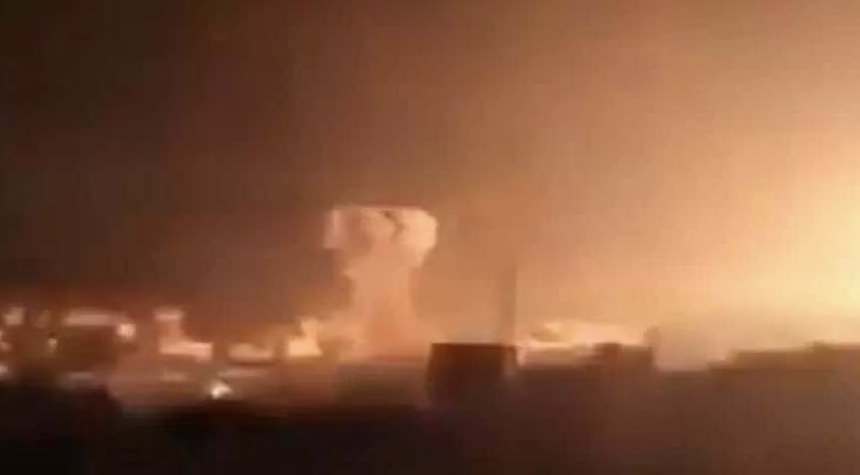India and Pakistan are engaged in escalating tensions, trading fire, and mutual accusations. The fact of the matter is that the situation is complicated and highly volatile, with both nations boasting significant firepower and the ability to cause severe damage to one another.
The Indian military has acknowledged targeting Pakistan’s air defense system, with Pakistan claiming to shoot down several of the Indian drones. Meanwhile, India has asserted that it has “neutralized” Pakistan’s attempts to retaliate. However, the truth behind these claims is murky at best, with no concrete way to verify the veracity of these statements.
The recent spate of violence comes on the heels of an attack in India-controlled Kashmir, where gunmen reportedly killed more than two dozen individuals, most of whom were Hindu tourists. India has pointed the finger at Pakistan for orchestrating the attack, a claim that Islamabad vehemently denies.

The left will tell you that this is a simple case of two nations locked in a bitter conflict. This is absurd. The reality is that this situation is a direct result of years of tension, mutual suspicion, and territorial disputes, particularly over the region of Kashmir. These two nations have fought two of their three wars over this disputed territory, a fact which further fuels the ongoing animosity.
Now, let’s say that the situation continues to escalate. The consequence could be another all-out conflict between the two nations, a prospect that the international community is keen to avoid. U.S. Secretary of State Marco Rubio has urged both sides to de-escalate the situation. However, the rhetoric from both sides doesn’t seem to indicate a desire for de-escalation.
If the situation remains unresolved, the likely outcome would be continued violence, potentially leading to significant loss of life and destabilization of the region. This is a situation that needs to be handled with extreme caution, with a focus on diplomatic solutions rather than military confrontations.

The problem, fundamentally, is that these two nations are locked in a dispute that dates back decades. The relationship between the countries has been shaped by conflict and mutual suspicion, particularly over their dispute about Kashmir. They need to find a way to resolve their differences peacefully, without resorting to violence and aggression.
Is the current path of escalating tensions and violence the best way to resolve this dispute? The answer is, objectively, no. What India and Pakistan need is to engage in meaningful dialogue, to address their grievances and find a way to coexist peacefully.
To summarize, the conflict between India and Pakistan is a complex issue that cannot be resolved through brute force or aggression. It requires careful negotiation, compromise, and a commitment to peace. Both India and Pakistan need to take a step back and reassess their approach to this situation.

